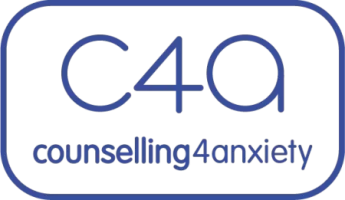What Does Social Anxiety Feel Like?
You’re not alone in the tightness in your chest, the racing thoughts, or the “What if I embarrass myself?” mantra playing on loop before and during social interactions. These feelings—heart pounding, palms sweating, voice catching—are deeply unsettling. You might catch yourself avoiding gatherings, skipping mornings out, or staying silent in meetings. You may feel stuck in a cycle of self-judgment and worry that it’s impossible to break free from.
Why Social Anxiety Holds On — And What to Know
First, it’s important to know that these feelings aren’t your fault—they’re part of a learned response, often built from past experiences or deeply ingrained beliefs about judgment and expectation. Social anxiety often stems from an internal belief that you must be perfect, or that others are constantly evaluating you. This belief triggers a fight-or-flight response—even when you’re just sharing a casual comment or entering a room of strangers.
Psychologically, this involves a heightened sensitivity to what others might think. Over time, that sensitivity becomes a hardwired pattern. But here’s the good news: our brains are plastic. That means they can be rewired—gently, compassionately, and one thoughtful step at a time.
A Gentle Path Forward
Here’s how we, as therapists and journey companions, can walk toward recovery—at your pace.
1. Naming the Fear
Let’s begin by identifying your specific anxieties: Is it speaking up in meetings? Saying hello to new people? Making eye contact in a group? Naming the fear takes it from an overwhelming “something’s wrong with me” to a manageable “this is what feels tough right now.”
2. Practicing Small, Safe Steps
Recovery doesn’t leap forward in leaps and bounds—it advances in small, steady steps. Try these:
- Make eye contact and smile at a friendly barista.
- Offer a simple compliment to someone you trust.
- Attend a familiar social setting (like a small gathering), allow yourself to observe, and perhaps speak up once about something neutral.
Each small success rewrites the message your brain carries: “I can connect. I can be myself. I am okay, or there is another way”.
3. Challenging Your Inner Critic
Let’s gently question the inner monologue:
- What evidence do you actually have that you’ll be judged?
- When have you been kind to others—even when you felt awkward?
- What would you say to a friend in your shoes?
Using a therapy technique called cognitive restructuring, we sift through thoughts that say, “I’ll embarrass myself,” and replace them with balanced, gentle truths like, “I’ve handled awkward moments before—and I can handle this, too.”
4. Mindfulness and Grounding
When anxiety floods in, grounding tools can rescue us:
- Slow, deep breathing: In for four counts—pause—out for six. Let your exhale be longer, calmer, soothing. You may also want to visualise the term ‘relax’, as though it is dropping through your body and pushing out anxiety tensions.
- Grounding touch: Hold a smooth stone, feel your feet on the floor—grounding brings you back to now, away from what-ifs.
- Connect with the present. What is around you? Is there a colourful bird or plant that you can see? What does it smell like?
These practices bring your mind back from the future-based worry to the here and now—where you’re safe.
5. Building Connection, Not Performance
A shift from performing to connecting can transform social anxiety:
- Focus on curiosity—ask someone about themselves, listen with genuine interest, rather than worrying how you come across.
- Let small moments of connection—shared laughter, mutual awkwardness—even when imperfect, be small triumphs.
6. Treating Yourself with Compassion
When you face a social situation and it doesn’t go as you’d hoped, or even feels overwhelming—take a breath and treat yourself as kindly as you would a friend. Self-compassion is a powerful antidote to shame and retreat.
Why This Works
Because small, real experiences of connection and acceptance teach your brain that “I’m okay—even if I feel nervous.” With time, repetition, and reflection, the brain begins to weaken the old patterns of avoidance and judgment while reinforcing the newer, gentler pathways of courage and connection.

